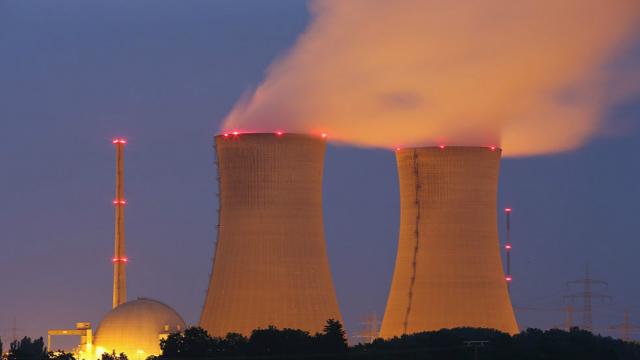The Cost of Anti-Nuclear Sentiments

Add in the Japanese government’s refusal to invest in renewable energy, and it’s very clear what you get: coal. The nation has fired up at least eight new coal plants since 2016 and has plans for an additional 36 over the next decade. Outside of India and China, this represents the world’s biggest coal investment.
How these folks are going to achieve their goals for greenhouse gas emissions is anyone’s guess.
This civilization needs a sane approach toward nuclear energy, one that contemplates the risks as they actually exist, rather than those of our nightmares. Also, needless to say, a government’s decision to eschew the development of renewable energy is a criminally insane act.

Craig,
Sadly, Nuclear Energy has been badly misrepresented to the point where public sentiment and fear of the industry is very deeply ingrained and almost impossible to rehabilitate.
Advanced nuclear power generation, especially using Thorium as a replacement for Uranium is the most logical of all zero emission energy resources.
Economically advanced Nuclear reactors, especially miniature modular thorium reactors such as the Toshiba design, are a practical and affordable solution to the worlds power generation requirements and capable of replacing Coal, bio-mass and other less environmentally desirable sources of industrial power generation.
The problem for the Nuclear Industry is public perception and political opportunism. It would be an incredibly brave politician to actively advocate expanding nuclear generation.
However, in nations where public opinion matters less, progress is occurring.
The PRC’s National Energy Administration reports China will bring on line eight new nuclear reactors this year, while the Nuclear Power Corporation of India (NPCIL) has finally generated power from it’s experimental “fast breeder” reactor at Kalpakkam.
This facility, 15 years in construction, has joined the race with the only other nation successfully pursuing fast breeder technology, Russia. Russia has been very active in this technology since 1980.
Meanwhile in the Netherlands, a Nuclear Salt Irradiation Experiment research facility met with hysterical opposition from the public and EU.
The researchers want to use thorium as a fuel for a molten salt reactor. Opponents demand experimentation cease because an ‘accident’ would “completely destroy the Netherlands and Denmark, compete with solar and Wind, and promote the use of nuclear weapons”.
Massive protests postponed the project for years, despite having no scientific validity to support the hysteria. The experiment has finally recommenced.
In the US a private consortium wishing to invest in reviving miniature thorium fast breeder technology, remained stalled in a quagmire of regulation. In 2018 the investors managed to attract the attention of President Trump.
The President promised to investigate a method of expediting and simplifying the US regulatory approval process which is very antiquated, massively bureaucratic, taking over 25 years to grant permission and costing hundreds of millions before commencing construction.
How much a President can accomplish in a heavily legislated regulated regime is yet to be seen, but if anyone can rationalize the regulations fearlessly, it will be Trump.
Regrettably, sections of the media and organizations such as the Sierra Club and Amory Lovins (a moral midget who fancies himself El Caudillo of the Rocky Mountain Institute) remain vehemently anti-nuclear.
Amory Lovins demands even experimental nuclear technology be considered a “crime against humanity” and punishable as such. While an employee of Friends of the Earth (FOE), Lovins enthusiastically endorsed his fellow anti-nuclear advocate Martin Litton’s proclamation;
“I really don’t care about possible nuclear accidents because there are too many people anyway ! I agree with those who would sabotage these plants to cause disasters.I believe playing dirty, if you have a noble end, is just fine “.
(as I say, an egotistical moral midget)
As recently as 2016, Lovins delivered a long, rambling and often contradictory lecture, claiming;
“with uranium-based nuclear power continuing its decades-long economic collapse, it’s awfully late to be thinking of developing a whole new fuel cycle whose problems differ only in detail from current versions, thorium nuclear generation is just as dirty, just as dangerous”.
This form an advocate claiming to be a physicist !
Lovins also dismissed Toshiba’s new designs as uneconomic because;
“Nuclear reactors derive their claimed advantages from highly concentrated sources of heat, and hence also of radiation. But the shielding and thermal protection needed to contain that concentrated energy and exploit it (via turbine cycles) are inherently unable to scale down as well as technologies whose different principles avoid these issues.”
Lovins then went on to advocate governments to prevent even experimental units being built because if they proved successful it would lead to further “nuclear proliferation”.
His seemingly inexplicable opposition to the ability of fast breeder reactors to use and destroy uranium and plutonium waste from older reactors, including ageing nuclear weapons, seems peculiar until he explains;
” such a facility might lessen the fear the general public has concerning nuclear technology”
Lovins believe such an event be prevented at all costs.
If this is the reaction from otherwise well educated opponents of the nuclear industry, is it any wonder the general public remains fearful ?